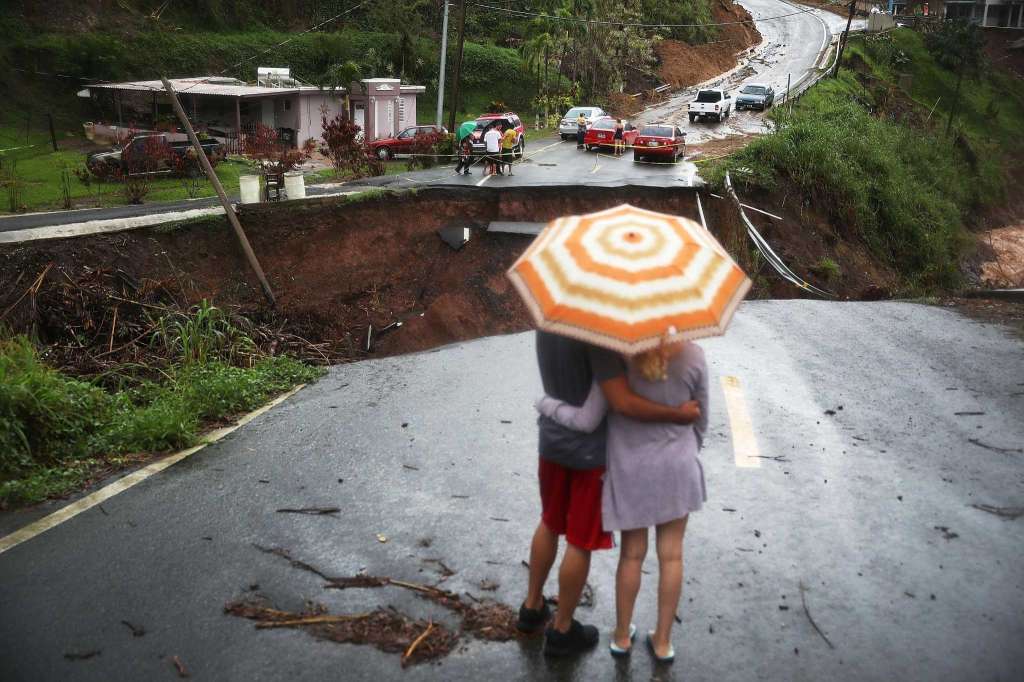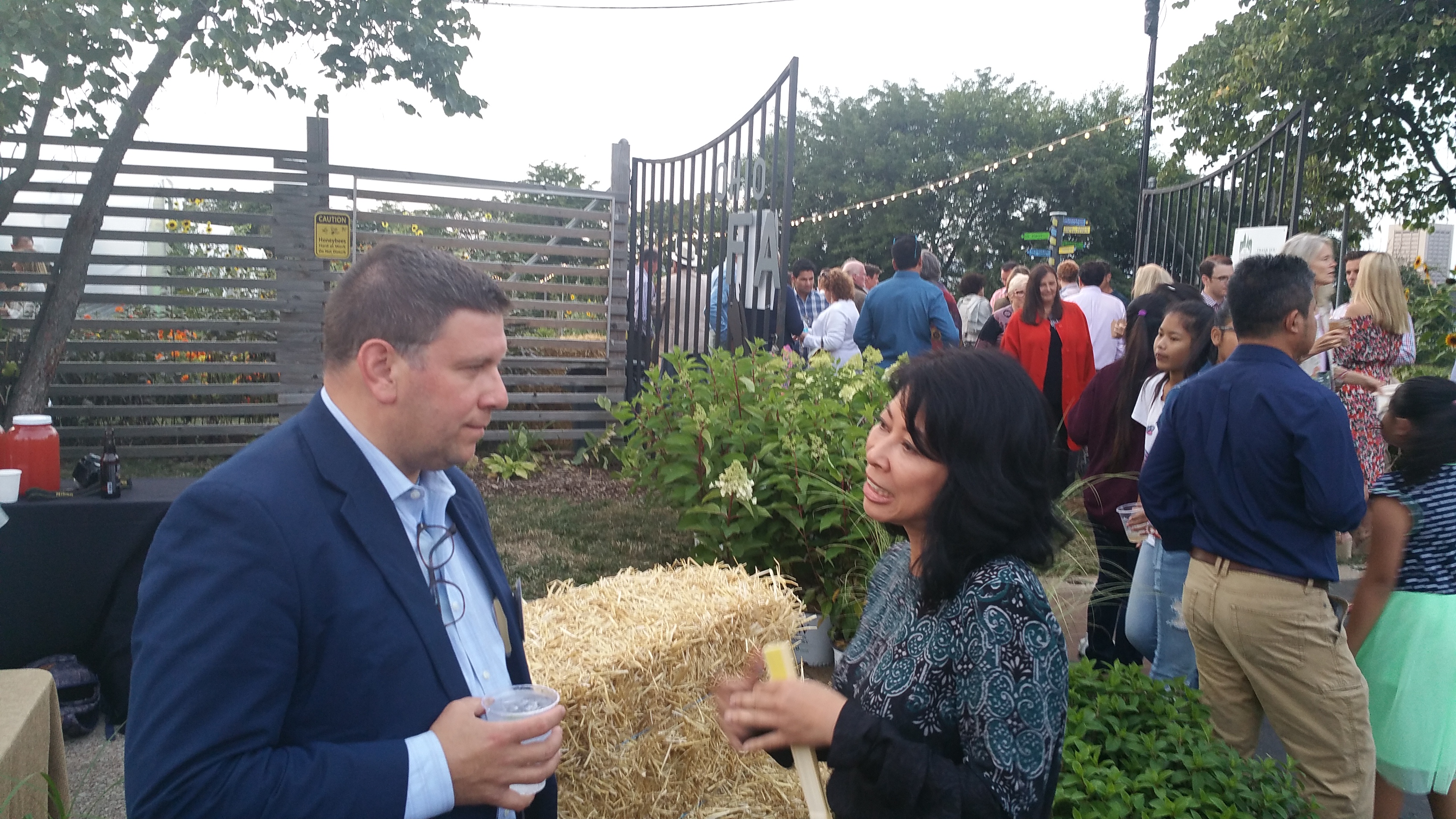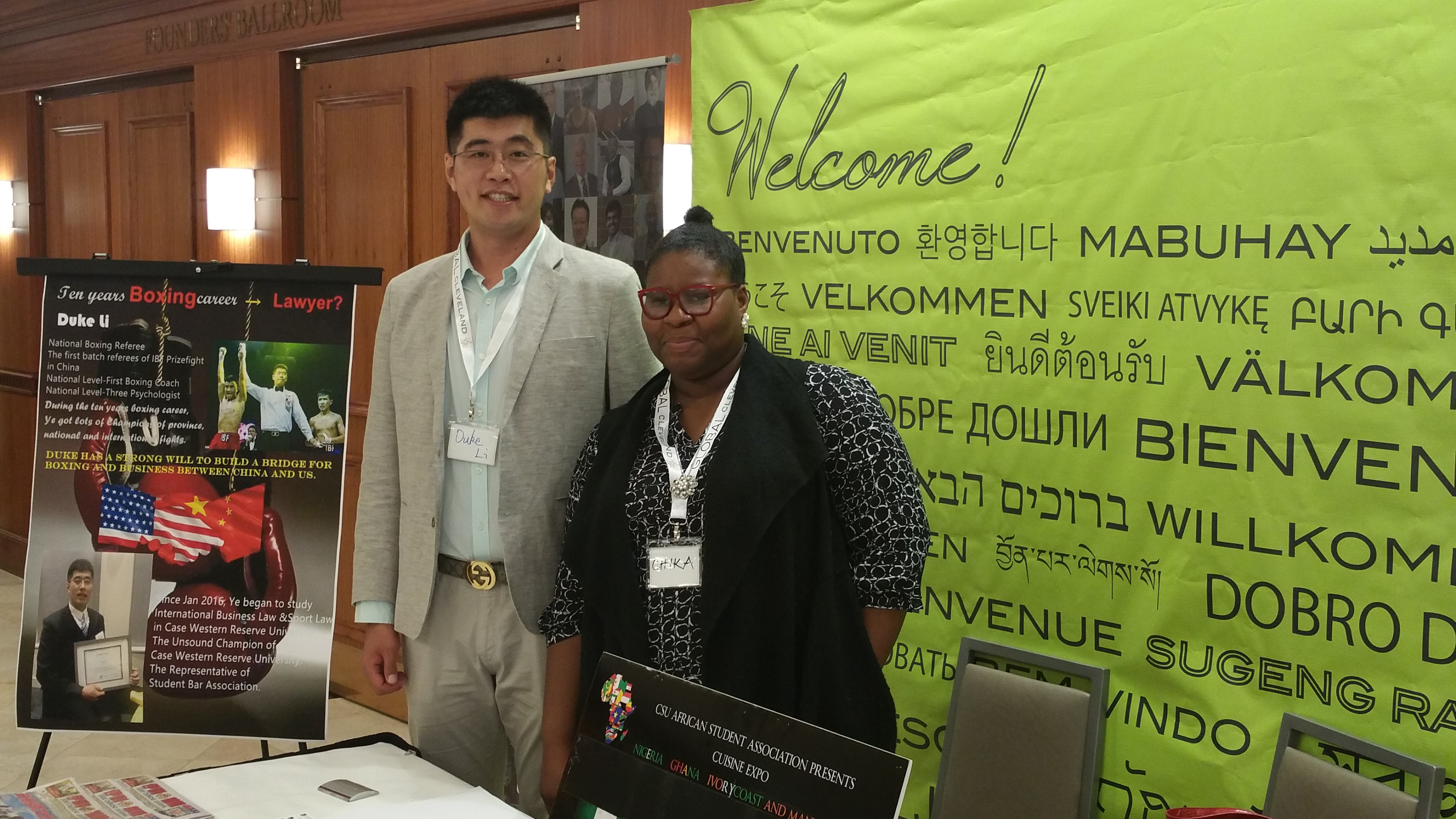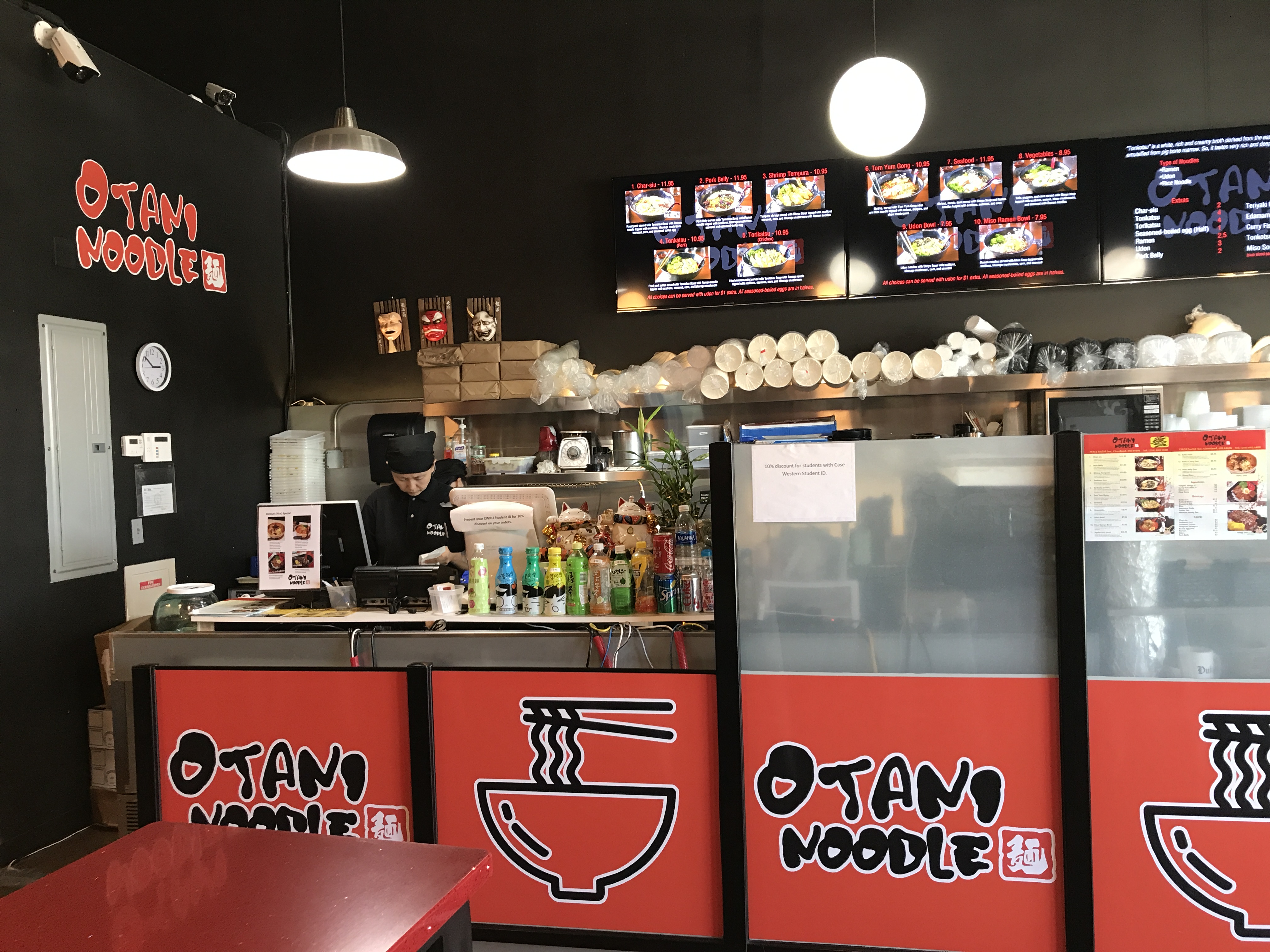Cleveland community leaders call for rapid help, and a warm welcome, for Puerto Ricans in crisis

Cleveland, Ohio, October 9, 2017--The devastation and suffering in Puerto Rico breaks our hearts. Cleveland shares a long and special kinship with the commonwealth. Puerto Ricans are by far our largest Hispanic community. Many of us have friends and family in Puerto Rico, parents and sisters and brothers whom we know are in pain and maybe in peril.
Now is the time to put Cleveland’s welcoming tradition and policies into action. Puerto Rico needs help now. People need food and water and electricity. A shattered infrastructure must be rebuilt. We encourage three simultaneous approaches.
- Help personally and immediately.
The Cleveland Foundation, in cooperation with Puerto Rican community groups, has set up a fund that will get aid to the right places as quickly as possible. Between now and Nov. 30, Greater Clevelanders can visit www.clevelandfoundation.org/puertorico to give online. All donations are to be transferred directly to the Puerto Rico Community Foundation (Fundación Comunitaria de Puerto Rico) and specifically designated for hurricane relief efforts in the hardest hit areas throughout Puerto Rico.
- Push the federal government to respond more vigorously.
Let us encourage our national leaders and representatives to expend all available resources to help fellow Americans in distress.
- Embrace the unique role Cleveland can play.
Many Puerto Ricans will be looking to move to the mainland, for their own safety and for the health and wellbeing of their children. Hopefully, we can make Cleveland their first choice. Let’s put out the word that they are welcome here: that they will find familiar churches and shops and often relatives, certainly friends.
The economic implications for our region are significant as the city embraces our new arrivals. Housing, medical care, access to our already proven and strong human service network, and the leadership of agencies like the Spanish American Committee, would all serve to mitigate the emotional trauma and physical pain. Global Cleveland will put its Professional Connections services to work to seek job opportunities for the newcomers, many of whom will have bilingual skills.
For more than 60 years, our foundations have worked with the Puerto Rican community to create a foundation of strength and Boricua pride. In addition, Mayor Frank Jackson has declared Cleveland to be open to immigrants and refugees from everywhere. County Executive Armond Budish has made international outreach a key plank in the county’s economic development plan. Our Governor, John Kasich, speaks eloquently of the contributions of immigrants and the need to more assertively welcome newcomers to Ohio.
Let’s start with our brothers and sisters suddenly in need. Let’s help Puerto Rico heal. But let’s not be afraid to say “Bienvenidos de Cleveland,” and welcome new neighbors.
Puerto Rico is the United States. It is all of our obligation as residents of Cleveland, Cuyahoga County, and Northeast Ohio to act in a manner aligned with our shared values and love of our families.
Sincerely,
Joe Cimperman
President, Global Cleveland
Armond Budish
Cuyahoga County Executive
Jose Feliciano Sr.,
President, The Hispanic Roundtable
Cleveland community leaders call for rapid help, and a warm welcome, for Puerto Ricans in crisis
Cleveland, Ohio, October 9, 2017--The devastation and suffering in Puerto Rico breaks our hearts. Cleveland shares a long and special kinship with the commonwealth. Puerto Ricans are by far our largest Hispanic community. Many of us have friends and family in Puerto Rico, parents and sisters and brothers whom we know are in pain and maybe in peril.
Now is the time to put Cleveland’s welcoming tradition and policies into action. Puerto Rico needs help now. People need food and water and electricity. A shattered infrastructure must be rebuilt. We encourage three simultaneous approaches.
- Help personally and immediately.
The Cleveland Foundation, in cooperation with Puerto Rican community groups, has set up a fund that will get aid to the right places as quickly as possible. Between now and Nov. 30, Greater Clevelanders can visit www.clevelandfoundation.org/puertorico to give online. All donations are to be transferred directly to the Puerto Rico Community Foundation (Fundación Comunitaria de Puerto Rico) and specifically designated for hurricane relief efforts in the hardest hit areas throughout Puerto Rico.
- Push the federal government to respond more vigorously.
Let us encourage our national leaders and representatives to expend all available resources to help fellow Americans in distress.
- Embrace the unique role Cleveland can play.
Many Puerto Ricans will be looking to move to the mainland, for their own safety and for the health and wellbeing of their children. Hopefully, we can make Cleveland their first choice. Let’s put out the word that they are welcome here: that they will find familiar churches and shops and often relatives, certainly friends.
The economic implications for our region are significant as the city embraces our new arrivals. Housing, medical care, access to our already proven and strong human service network, and the leadership of agencies like the Spanish American Committee, would all serve to mitigate the emotional trauma and physical pain. Global Cleveland will put its Professional Connections services to work to seek job opportunities for the newcomers, many of whom will have bilingual skills.
For more than 60 years, our foundations have worked with the Puerto Rican community to create a foundation of strength and Boricua pride. In addition, Mayor Frank Jackson has declared Cleveland to be open to immigrants and refugees from everywhere. County Executive Armond Budish has made international outreach a key plank in the county’s economic development plan. Our Governor, John Kasich, speaks eloquently of the contributions of immigrants and the need to more assertively welcome newcomers to Ohio.
Let’s start with our brothers and sisters suddenly in need. Let’s help Puerto Rico heal. But let’s not be afraid to say “Bienvenidos de Cleveland,” and welcome new neighbors.
Puerto Rico is the United States. It is all of our obligation as residents of Cleveland, Cuyahoga County, and Northeast Ohio to act in a manner aligned with our shared values and love of our families.
Sincerely,
Joe Cimperman
President, Global Cleveland
Armond Budish
Cuyahoga County Executive
Jose Feliciano Sr.,
President, The Hispanic Roundtable
Out of 100,000 Interviews, These 7 Candidate Questions Stood Out
Author: Sjoerd Gehring
“Do you have any questions for us?”
You’ll be asked it in almost any interview. And while you may be tempted to sit back and relax during this portion—while the recruiter’s put in the hot seat—that’s not actually in your best interest.
Why? Because this is your final chance to make an awesome impression.
My team and I interview around 100,000 people a year so, as you can imagine, we always take notice when someone asks a question besides “What’s a typical day like?” or “When will I hear back from you?”
In fact, you shouldn’t be afraid to grill hiring managers during this portion of the conversation. Chances are, they're hoping you will.
To help get you started, here are some of the super-smart questions I’ve been asked during actual interviews by real-life candidates–and the reasons they got my attention.
1. “Who Does the Wireframing for Your Site?”
OK, that’s clearly specific to a certain role. But I’m using this one as an example of a question you can ask that places you in the role you’ve applied for.
This question came from a prospective designer. We got talking about a new internal website we were developing and he asked, "Who does the wireframing for your website, the design team or a specific UX team?"
We ended up having a great discussion about our processes and how he could contribute to the development of the project. I remember thinking it was like we were already working together. And, from his perspective, he got a great insight into the way we work across teams and who has responsibility for what.
2. “Why Does This Role Matter to the Growth of the Company?”
Talk about putting the ball back in my court! This question showed me the candidate was interested in more than just what I thought of him then and there, in the interview. She wanted to make an impact beyond her own role or team and get a feel for how she’d fit into the future plans of the business.
And, from a candidate perspective, it’s a great way to help you see whether the role you’ve applied for will be a high or low-profile position. It also gives you an indication of what’s expected of the person who fills that role.
3. “Could I Meet Some of the People I’d Be Working With?”
I’ve been asked this a few times—especially more recently—and it’s a great question. (And one that we always try to accommodate.) It shows me the candidate understands the importance of cultural fit and team dynamics and that it matters to them. This is clearly not a person who wants to come to work, sit down at their desk every day, and work in a solitary bubble with their headphones on.
Plus, if you want to get a sense of whether you’ll enjoy being around the people you could be working with every day, this is the question you should ask.

4. “Why Has the Person in This Role Decided to Leave?” / “Who Had This Role Before?”
This can be a very revealing question! Why is the position you’ve applied for available? Is it because the previous person has been promoted or moved to a different team? Both of which would suggest that this job would set you up for progression.
Or, did the person leave to join another company? Or because they didn’t meet expectations? If the recruiter hesitates or becomes evasive, that could tell you everything you need to know! Equally, stay alert and if you sense it’s time to move the conversation on, gently change the subject to something else or ask a new question that’s easier to answer.
5. “What Do You Like Most About Working Here?”
I’ve only been asked this once, believe it or not. It was by a candidate who’d just finished giving a very competent response to the question, “Why do you want to work here?”
I loved the way she tossed this question right back at me. And, although it took me a few seconds to think how to respond, we ended up having a great conversation about how rewarding a career at J&J can be, both personally and professionally.
As a candidate, it’s the perfect question to catch the recruiter a little off-guard and get an honest answer. Regardless of what they say, you can probably gauge how they truly feel about their company, which gives you another indication of whether it’s the right fit for you.
6. “Do You Have Any Reservations About Me or My Qualifications?”
A seriously gutsy question! So gutsy that I was impressed by the confidence of the candidate who asked it. You might think you’re setting your self-esteem up for a knocking. But it’s actually very smart.
A question like this gives you the chance to address any concerns the recruiter may have about your fit for the role head-on, in person. In the instance I’m thinking of, the candidate was actually able to mitigate the concerns I had about a large, unexplained gap on his resume. It transpired he’d taken an unpaid sabbatical to care for his infant daughter while his wife went back to college.
Sure, it takes some gumption to ask. But why allow a potentially unfounded reservation turn into a reason to give someone else the job ahead of you?

7. “How Do You Deal With Professional Disagreements Within the Team? Can You Give Me an Example?”
Another question that shows a recruiter that they’re talking to a candidate who cares about team dynamics and understands that how a team works together can make or break the success of its projects.
For you as a candidate, it’s an incredibly useful way to find out whether you’ll be joining a team of ‘yes-men’ or whether respectful (emphasis on respectful!) disagreements are encouraged to ensure all avenues are explored and that company goals are put ahead of egos. Providing the interviewer answers honestly, it also gives you an indication of inter-team dynamics.
As a recruiter, I’ve heard a lot of awesome questions (such as these)—and some I bet the candidate regretted instantly! But, with a little preparation, there’s no need to feel anxious about this part of an interview.
The hiring manager knows you want to figure out if the role is right for you so they’ll be expecting questions. And by taking a couple of the examples above and modifying them to fit your own situation, I can almost guarantee you’re going to instigate some really valuable discussions that help you (both!) to make the right decision about the role.
Photo credit: interview courtesy of Jessica Peterson/Getty Images.
To read the original article, click here.
Because America said Welcome, Loung Ung Came to Cleveland.
By Joe Cimperman
In a time of xenophobia and anti-refugee rhetoric, let’s remember what refugees endured to get here and what they bring to our communities.
Loung Ung is ours. I know she’s a daughter of Cambodia. Because of her books and now her movie, she’s a citizen of the world. But Loung is also a Clevelander, part of the living mural that makes this city so special.
If you don’t know of her incredible story, it’s time to hear it. “First They Killed My Father,” the new movie by Angelina Jolie, is her story. It is her story. It will stay with you long after the film ends. It is the story after the ending that Loung is writing every day, and to the benefit of everyone in Northeast Ohio, those born here and those born abroad.
Loung is a survivor of the Cambodian genocide of the 1970s. She was five when her family was torn from its middle-class life in the capital city of Phnom Penh and forced to trek into the countryside, into the twisted world of the Khmer Rouge. Both of her parents were murdered. Her little sister starved to death. More than 20 relatives perished in one of the worst human atrocities of the 20th century.
Through luck and sheer will, Loung survived. She made it to America and recounted her odyssey in a breathtaking book, “First They Killed My Father: A Daughter of Cambodia Remembers.” Seventeen years later, Angelina Jolie turned that book into a harrowing movie, which is now streaming on Netflix and showing at select theaters across the land.
Toward the end of the movie, we see Loung re-uniting with her surviving siblings in a war-torn Cambodia. The audience is left to wonder what happened next. We know what happened. Cleveland happened. Her gift of her life to Northeast Ohio happened. Her blood and tears and joys and dreams as a REFUGEE living and thriving here in Cleveland, in Shaker Heights, on West 25 Street next to the West Side Market, happened.
Loung’s older brother and his wife were able to get her out of Cambodia. They were resettled by a church group in Vermont, where Loung attended college. There, she met a young man from Cleveland, Mark Priemer. They married and moved to his hometown of Shaker Heights.
Loung writes and travels widely as a human right activist. She became friends with luminaries like Angelina Jolie, Patch Adams, Paul McCartney and Queen Noor. But she also puts her immigrant spirit to work in her new hometown. Loung and Mark helped develop restaurants on West 25th Street, starting with Bar Cento and Bier Markt, continuing with Market Garden Brewery and the huge new brewery behind the West Side Market. The couple worked with colleagues like Sam McNulty to create restaurants and a destination that employs hundreds of people.
Think about it: a refugee fleeing war torn genocide, being welcomed not banned in the United States, participating in economic development for native born and internationally born people alike, creating millions of dollars in economic development, and providing hundreds of jobs. Her refugee story is like so many other refugee stories, and the possibilities of what these members of our human family can do is infinite. They may speak differently than we do, worship differently, and enjoy and celebrate different customs. But what do we have in common? A desire for family, for success, for sharing good news with neighbors and finding solace together when times are hard.
This is Luong’s story. This is the story of the 1,100 refugees who came to Cleveland last year, and the 750 this year. Over 1,800 new strivers, entrepreneurs, community builders, parent teacher organization attendees, soccer coaches, idea factories, neighbors, employees, fellow worshippers, refugees.
At Global Cleveland, we’re not surprised when our refugees work wonders. We see it often. Something about the refugee experience creates not only survivors but strivers.
I had the honor of speaking this August 28 at the annual benefit for The Refugee Response, a nonprofit group that helps prepare refugees for success in Northeast Ohio. The setting was its Ohio City Farm, where long rows of vegetables and herbs run toward the cusp of the Cuyahoga River valley and the lights of downtown and beyond.
It’s the largest urban farm in America and one of the reasons Cleveland is a national leader in the farm to table/ urban agriculture movement. More than a dozen restaurants, many of them in walking distance, buy their produce from the farm.
The Refugee Response hires newly arrived refugees to till the earth. It also offers the education and training they need to move past farming and succeed in an urban economy.
One of the first people I encountered that night was Luong. She had been in Los Angeles working on the movie post production. After a long flight home, she drove straight from the airport to the benefit. She didn’t want to miss the moment.
We were all greeted by refugees who work the farm. They were men and women from Iraq, Bhutan, Nepal and Congo. Like Loung, they were people who had lost everything and were starting over.
I thought of Loung and what she heard that changed everything and was probably the beginning of all she needed.
“Welcome,” I kept saying, “welcome home.” When people ask me that inevitable question, as the world churns and civil societies erupt, when boats are filled past capacity of people who never wanted to leave but for them and their babies they have to, when we have a nation built AND SUCCEEDING BECAUSE OF the huddled masses, the yearning, the community in some cases dying to be free, when people ask me, ask us, the inevitable question, “What can I do?” the answer is the follow up to thank you. The answer is “Welcome.”
International Students Called to Pitch Their Bright Ideas
By Wenzhu Sun
Listen up, international students! This is an opportunity for your voices and your ideas to be heard.
Through the generous sponsorship of the Burton D. Morgan Foundation, Global Cleveland and the Health Tech Corridor are co-hosting an International Student Pitch Showcase November 1 at the Happy Dog at Euclid Tavern.
If you have an idea for a startup, an innovation, a non-profit program or simply a better mouse trap, now is the time to speak up. We’re planning to showcase the ideas of 12 international students before a panel of judges and an audience that includes employers, potential investors and fellow students.
Your pitch can be based on a research paper, a school project or an innovative idea that you want to share – as long as your presentation falls into one of these four categories.
- Business Management and Process Improvement
- IT/Connected Devices (IOT)
- Community or Civic Innovations
- Healthcare or Biomedical.
The showcase, which is open to the public, springs from May’s Global Employer Summit at the InterContinental Hotel. The summit included a showcase of ideas by international students outside of the main conference room. Afterward, many employers expressed gratitude that they were able to connect with students from around the world and see their ideas.
“We got really great feedback,” said Wenzhu Sun, an international talent specialist at Global Cleveland. “They found that it’s not difficult to talk to someone international. In fact, many students have such great skills and experience that they want to hire them.”
Global Cleveland is accepting applications for the pitch contest through October 24. We will notify finalists October 27. Please submit a one-page summary of your idea and/or 3 slides with a summary.
Judging process: 2 judges will be sitting through all 4 categories, and there’s one rotating seat. They will be asking questions and judging based on a rubric, assigning a numerical score to participants. We will have a live “people’s choice” winner ($200 visa gift card) through online survey such as Direct Poll; and winners of EACH category will receive a $700 visa gift card! In addition, winners and runner-ups will receive a certificate issued by Global Cleveland, and possible opportunities to pitch at future Global Cleveland events.
To apply or for additional information please visit our International Pitch Contest Page.
If you have any questions please email [email protected]
The International Student Pitch Showcase
When: 5:30-8 p.m. Wednesday, November 1, 2017
Where: Happy Dog at Euclid Tavern, 11625 Euclid Ave, Cleveland
Who’s eligible? Currently enrolled international students or recent graduates
Questions? Contact [email protected]; 216-472-3282 ext. 106
This event is sponsored by:

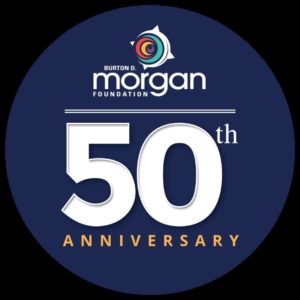

Economic Impact Report: Easy to Slight, Refugees Show Their Economic Might
Easy to slight, refugees show their economic might
In the midst of a global refugee crisis, the Trump administration has said it plans to cut by more than half the number of refugees accepted to America each year, to fewer than 45,000.
The recent announcement came only days after the White House issued the latest version of its travel ban, severely restricting travel from eight nations. Two of those nations, Syria and Somalia, have been the source of many refugees to Northeast Ohio.
The administration cited potential crime and the need to enhance the vetting process for refugees, which already spans two years.
Meanwhile, a local analysis paints a far different portrait of refugees and their likely impact. Chmura Economics & Analytics, a Cleveland consulting firm, found that a modest public investment in resettlement—most of its supplied by the federal government—has produced an astonishingly self-sufficient group of new Clevelanders.
The economic impact study, released September 7, was commissioned by the Refugee Services Collaborative of Greater Cleveland and can be found on the group’s website-- rsccleveland.org/
Between 2000 and 2016, the region welcomed about 7,600 refugees, many of whom had been made stateless by persecution or war. Once in Cleveland, most rebounded rather quickly. Researchers found that local refugees are more likely to be working than the general population and far less likely to be receiving public assistance. In fact, after only two years in their new home:
- less than 10 percent of refugees were receiving public assistance, compared to 21 percent of the general population
- 75% of adult refugees held a job, compared to 63% of the general population
While the average income of a refugee worker is only $19,344 per year, immigrants tend to get and stay married. Area refugees enjoy a household income averaging $35,849 a year, which helps explain why they are buying houses in he city and starting businesses.
The study found that Cuyahoga County’s relatively small refugee community has started 42 businesses that, collectively, paid more than $465,000 in local and state taxes and employed more than 200 people last year.
“This is a uniquely Cleveland thing we have,” said Patrick Kearns, executive director of The Refugee Response, which provides refugees with job training and work on its Ohio City Farm.
Kearns notes that refugees who settle in Greater Cleveland tend to do better than refugees in other cities.
Joe Cimperman, the president of Global Cleveland, said their success is a credit to resettlement agencies like Catholic Charities, which handle direct resettlement, as well as to the nonprofit groups belonging to the Refugee Services Collaborative.
Groups like The Refugee Response, Building Hope in the City and Asian Services in Action, step in later to help with bewilderment, trauma, loneliness and other refugee afflictions.
And much of the credit must go to the refugees themselves, Cimperman said.
“These are people who lost everything, who often languished in refugee camps for years and even decades,” he said. “And when they get here, all they want to do is work hard and find peace and raise their children.”
He said it is cruel and callous to suddenly turn away refugees, and to cast aspersions upon their character.
“We’re not afraid of our new neighbors,” Cimperman said. “We know them and we embrace them. They are so grateful. They keep thanking us for allowing them to be Americans, when it is us who should be thanking them.”
Community Partner: FRONT International
70+ International Artist, Curators and Scholars are coming to Cleveland for one Region-Wide Art Project in Summer 2018
FRONT International: Cleveland Triennial for Contemporary Art, is a region-wide exhibition of work by international artists, curators and scholars. In museum spaces and unconventional sites spread across the city, FRONT will be an expansive stage for local and international artists to create and share new work that is inspired by and engaged with the most important social, political, cultural and environmental issues of today. The themes and ideas explored by participating artists will be rooted in the spirit of Cleveland while connecting the city’s history and current realities to issues and ideas that are universal. FRONT will build bridges between Cleveland and important global markets to create creative lasting impacts in our local community.
The first iteration of FRONT is titled An American City: Eleven Cultural Exercises.
As conceived by the FRONT Artistic Directors, the residency is research based and geared to allowing artists great breadth in how they approach Glenville as a site for thinking and working. Each of the artists will commit to undertake public programs over the course of the residency, which may run, intermittently for local artists, from October until next May. In addition, we hope that each artist will produce a work to be "on view" during the run of FRONT next summer.
We deliberately drew together artists who work in several media, from performance, theater, spoken word, as well as traditional painting and sculpture. All the artists make work that responds to some aspect of the city. These artists may work on multiple projects with the community, and possibly with each other. Certainly, the arts campus and FRONT Porch will provide an incubator for visiting artists and local artists to share experiences while in Cleveland.
Fred Bidwell, Executive Director, invites you to a public forum to learn about FRONT International: Cleveland Triennial for Contemporary Art.
October 10, 2017 4 - 6 pm
Transformer Station
1460 W 29th Street
Cleveland, OH 44113
Light refreshments will be served. Space is limited, early registration is recommended. RSVP by October 6, 2017 by calling 216-938-5429 or emailing [email protected]
International Business Spotlight: Otani Noodles Spreads the Ramen
By Amaka Onwuama Uwagba
We’re excited that Otani Noodle will soon be opening a downtown shop near Public Square, and not just because they will be right across the street from our office (although that’s a big plus!). Otani is an authentic Japanese noodle house that offers a cultural experience along with healthy, delicious, Ramen-style meals.
Recently, we sat down with co-owner Joyce Luo and discussed her experience as an immigrant entrepreneur. What follows is an edited version of that conversation.
When did you come to America, and why Cleveland? I moved to America from China in 1996. I moved to the Cleveland area in the 2004 because the cost of living in Cleveland is low and I just like Cleveland. There is no stress.
Who are the co-founders of Otani Noodles and where are they from?
We have an Otani in Mayfield Heights. The restaurant has been open since 1978. Mr. Honda first opened the business 40 years ago. He then retired and my partner, Janet Yee, also from China, took over the Otani Japanese Restaurant. With time, my partner joined me and we opened the Otani Noodle (in Uptown) in June 2016.
Why and how did you start your business?
I love to eat. I eat a lot. I go to places just to eat. Even though I came over here. I travel to Toronto and New York two to three times a year just to eat. I was living in California when I came to America and there were lots of Ramen shops on every corner, but there was nothing in Cleveland. When I came here, I tried the other foods and it wasn’t that good, so I decided to open this restaurant.
What are some of the challenges you faced as an immigrant entrepreneur?
I don’t feel like I have any challenges. I feel like America is a fair country for everyone. I feel free. When you work, you make money. The only challenge I had was the language barrier. English is our second language. But I went to school and I learned English. The challenge is when you are new here and it is a new place, not like your country. Everything is different. I have a business back home, too, and the rules are different than the business rules here in America.
What is your next step in your business?
My dream for my business is to open an Otani Noodle location on the West Side of Cleveland, but right now we are focused on the new location of Otani Noodle, which will be in downtown Cleveland (234 Euclid Avenue). We will be taking over the Noodlecat location. We are pushing our grand opening for the end of October or the beginning of November, but ultimately, we should be open by the end of the year.
Immigrants Needing Advice May Soon Ask a ‘Community Navigator’
By Chris Hoey
Global Cleveland is taking action on a pressing issue and joining a program that promotes the integration of immigrant and ethnic groups into the larger community. Cleveland will join New York City, Pittsburgh, Los Angeles, Houston, Detroit, and Chicago in launching a Community Navigator program, designed to provide a trusty guide and a point of contact to members of marginalized communities.
A Community Navigator is a member of the immigrant and ethnic community who is well-known and well-respected by their peers. He or she will be trained by Global Cleveland staff in a one-day long training session to provide accurate information about their rights as immigrants or refugees and to guide eligible immigrants toward citizenship, often through workshops or other outreach initiatives. A Community Navigator is meant to be a mentor who can help to empower others to lead more confident lives.
“This program is going to allow members of different immigrant communities to be leaders among their peers,” says Jazmin Long. “Our goal is that we reach more people in our naturalization efforts and offer reliable support persons to the international community.”
A second component of the project is known as WE Lead – Women Empowered to Lead. With the establishment of a base cohort of women, Global Cleveland will help immigrant women to become leaders in their communities through training on immigration law and naturalization, financial literacy, leadership development, and expanded immigration legal services. Women Empowered to Lead will work in tandem with our Community Navigator program to create a more involved and integrated international community.
This program has already begun its recruitment efforts, and we hope to have the first Community Navigator training held on October 28th. Additional Community Navigator trainings will be held:
November 18th, 2017
December 2nd, 2017
January 20th, 2018
February 10th, 2018
March 3, 2018
March 24th, 2018
April 14, 2018
April 28, 2018
May 12, 2018
June 9, 2018
*Dates are subject to change
If anyone is interested in becoming a Community Navigator, they can contact [email protected] for more information. Similarly, if anyone is interested in joining the Women Empowered to Lead Cohort, they can reach out to Jazmin at [email protected].
Overall, this program is the result of a 3 years long grant, and Global Cleveland’s personal goal is to have 30 Community Navigators trained by the end of July 2018. However, with Cleveland’s capacity, we wouldn’t be surprised to see many more volunteers than we expect.
The programs are made possible by the Jones Day Foundation, Cities for Citizenship, and the National Partnership for New Americans.
Philanthropist Albert Ratner Awarded Cleveland Heritage Medal
Cleveland champion Albert Ratner was recently recognized for a lifetime of service to the city with the 2017 Cleveland Heritage Medal.
Mr. Ratner, the co-chairman emeritus of Forest City Enterprises and a founder of Global Cleveland, accepted his award September 14 at a ceremony at Cleveland City Hall. Also honored with the Heritage Medal were former Greater Cleveland Growth Association President Carole Hoover, former Cleveland Mayor Michael White, and Sam Miller, the co-chairman emeritus of Forest City Realty Trust.
Ratner and Miller, longtime friends and business partners, helped transform Forest City from a lumber supply company to a nationwide real estate development company. As they rose with the business, each man poured his passion and energy into community service, contributing to charities and leading civic projects that spanned cultures and stressed community bridge building.
Even at age 89, Albert Ratner remains one of Cleveland’s most active and recognizable civic leaders.
“Albert is Cleveland personified,” said Joe Cimperman, the president of Global Cleveland. “He never forgot his family’s immigrant roots, and he honors everybody else’s. There is so much that Albert does for this city, and so much that people don’t even know about. He is truly a man who believes in helping his sisters and brothers, from all over the world, and he helps those who are born here and those who make their way to our great community.”
Mr. Ratner was a primary architect of Global Cleveland, which seeks to revitalize the city and boost the regional economy by welcoming immigrants and international students.
An urban design expert, Mr. Ratner helped to create landmark developments across the country. Forest City is best known locally for the restoration of the Terminal Tower and the creation of Tower City, which opened in 1990. Still, he takes more pride in the people he helped and the causes he furthered.
“I don’t judge cities by buildings,” Mr. Ratner said upon accepting his award. “I judge cities by people. So I look around and say ‘I think we understand each other better and I think we’re doing better but we can do much better.’”
In addition to serving on the executive committee of Global Cleveland’s board of directors, he has been active in the Cleveland Plan to transform the Cleveland Metropolitan School District, the revitalization of the Gordon Square Arts District, Karamu House and Ohio’s Third Frontier Advisory Board. He has also driven Forest City’s investments into the Slavic Village Restoration Project.

